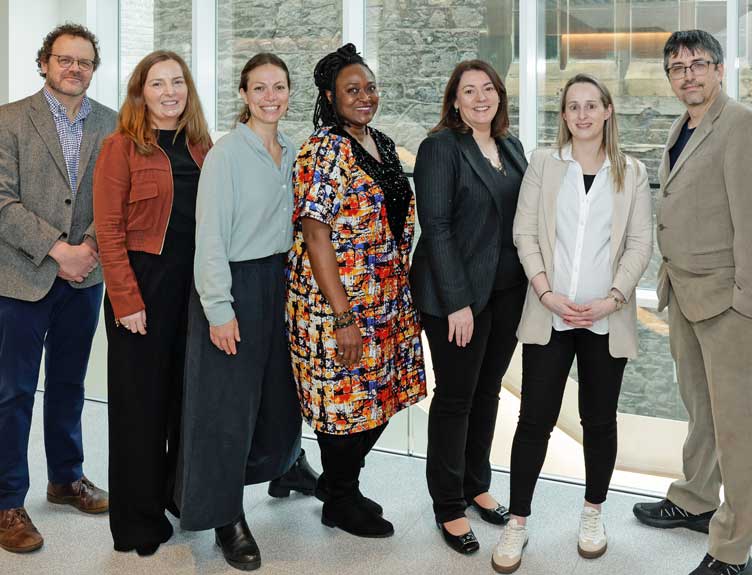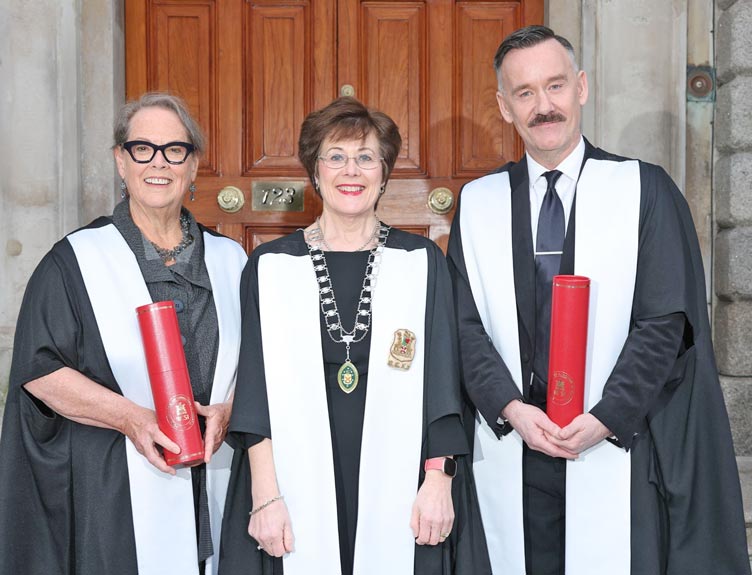RCSI tops the table in Planetary Health Report Card for second year

RCSI has been ranked as the top-performing medical school in Ireland in the Planetary Health Report Card 2024, winning the award for a second year in a row.
Part of a global initiative led by the Planetary Health Alliance, an international consortium of organisations committed to addressing global environmental change and its health impacts, the report card assesses the extent to which higher education institutions across the globe are promoting and supporting planetary health.
In a student-led evaluation, RCSI and other participating institutions were assessed and graded across five key indicators: planetary health curriculum, interdisciplinary research in health and the environment, community outreach and advocacy, support for student-led initiatives, and campus sustainability. RCSI’s performance across all categories resulted in an overall grade of A-, the highest in Ireland.
This prestigious recognition reflects the university’s commitment to addressing global health challenges and promoting sustainability for a healthier planet. This commitment is shared across the RCSI community, who are united in working to achieve the UN Sustainable Development Goals. The university is currently ranked first in the world for its contribution to UN Sustainable Development Goal 3, Good Health and Well-being, in the Times Higher Education (THE) University Impact Rankings.
Planetary health and the curriculum
The Planetary Health Report Card commends RCSI’s work to vertically integrate planetary health (PH) into its new medical curriculum, with lectures or components of lectures focused on planetary health, climate change, and sustainability within each module. A Climate and Health elective module provides a dedicated education on the relevant aspects of PH and sustainability.
The university is now working to extend planetary health education to its other health sciences programmes and the Climate and Health module is also now available as post-graduate education for healthcare professionals.
Reflecting its leadership in this area, RCSI was involved in devising an improved planetary health curriculum for medical students in Ireland through the CHIME (Climate Health in Medical Education) initiative, in collaboration with Irish Doctors for the Environment. There is now a curriculum that can be used in undergraduate medical programmes in Ireland.
RCSI researchers are involved in many projects relating to planetary health, including studies on household air pollution, the impact of climate change on public health, and sustainable surgery advancement.
The report card also scores the university highly for its efforts to achieve sustainability across its campus, commending its well-established and actionable plan for carbon neutrality, and its systems to facilitate sustainable transportation, waste management, and food packaging and procurement.
Real leadership
Professor Debbi Stanistreet, Head of the Department of Public Health and Epidemiology at the RCSI School of Population Health, said: “Climate change is affecting human health in a myriad of different ways, and it is critical that health sciences students understand the relationship between planetary health and human health. RCSI is showing real leadership by embedding planetary health content throughout our undergraduate medical curriculum.
“The introduction of sustainable healthcare projects, and a student-selected module on climate and health, enables students to explore topics such as the rise in waterborne diseases, mental health, and the impacts of floods, droughts and heat stress, as well as ways in which the health system can strive to reach carbon zero by 2050,” added Prof. Stanistreet.
Further celebrating RCSI’s leadership in this area, in 2022 the university became the first in Ireland to be awarded Beacon Status by the Centre for Sustainable Healthcare in recognition of its efforts to develop planetary health curricula in undergraduate medical education and the integration of sustainability more widely into health profession education.
The Planetary Health Report Card began in 2019 and has since been adopted by institutions around the world to track their progress in promoting planetary health. The report card is based on the Planetary Health Alliance's Planetary Health Education Framework, which provides guidance for institutions seeking to integrate planetary health into their teaching and research.
Find more information on the Planetary Health Report Card and its methodology here.



